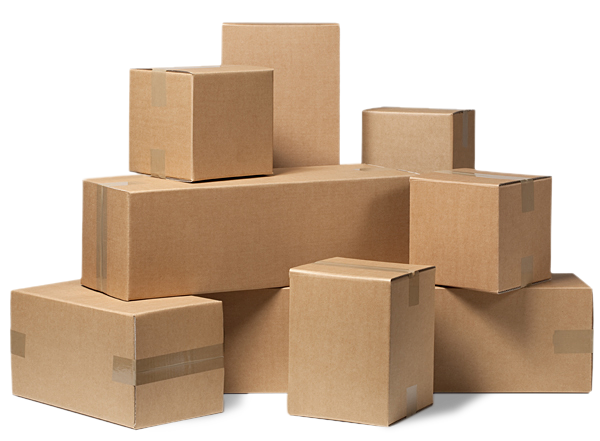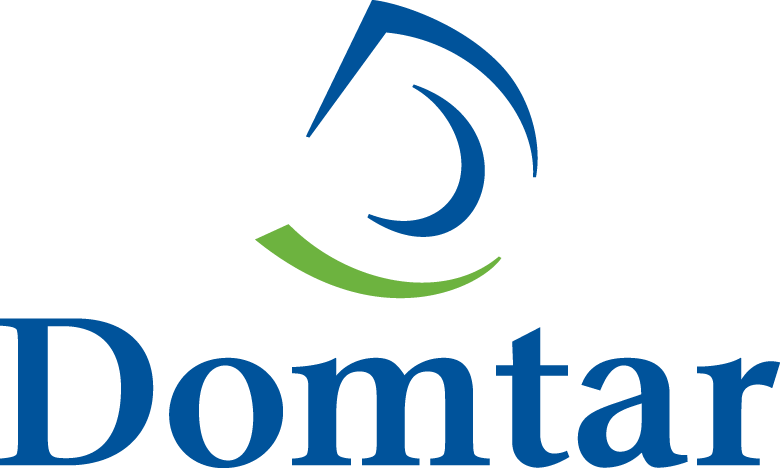Kingsport: Domtar’s Entry Into Recycled Packaging Market
Over the last several years, Domtar has evaluated the merits of repurposing key paper machines as we adjust our uncoated freesheet paper production capacity to match our customer demand. That’s why we announced the conversation of our Kingsport, Tennessee, mill into the company’s first packaging facility, a $350 million project.
This conversion is at the heart of our circular economy strategy. It embodies our commitment to lowering consumption of raw materials, utilizing regional and developing local waste recycling chains, as well as reducing non-recyclable waste, all while contributing to innovation and economic growth.
“We are entering an exciting market that directly aligns with Domtar's expertise and nearly 175-year legacy of turning fiber into useful products,” says Steve Henry, senior vice president of packaging. “Repurposing Kingsport is the first step in our long-term strategy to build a large and cost-competitive business. We are also contributing to the circular economy by decreasing our impact on the environment and making a product from reclaimed fiber that would otherwise be headed to landfill.”
Once the conversion is complete, the mill will be able to produce and market about 600,000 tons of high-quality, low-cost, recycled linerboard and corrugated medium annually, making the mill’s machine the second largest recycled linerboard machine in North America. To produce that, however, the mill will continue to need a steady supply of recovered fiber.
"Currently, there are no municipal recycling facilities (MRF) in the immediate Kingsport area,” says Charlie Floyd, vice president of strategic capital, packaging. “Domtar and other area industries are collaborating to attract and seek funding in support of establishing a Northeast Tennessee Regional MRF. The collection and re-use of fiber-based packaging materials and plastics, along with use of waste wood as a steam generating fuel, could easily make our region an educational example for how public-private partnerships can work to mitigate the issues of our over-flowing landfills while building a truly circular economy right here in the Tri-Cities.”
Once the conversion is complete, the mill will be able to produce and market about 600,000 tons of high-quality, low-cost, recycled linerboard and corrugated medium annually.
Kingsport: Domtar’s Entry Into Recycled Packaging Market
Over the last several years, Domtar has evaluated the merits of repurposing key paper machines as we adjust our uncoated freesheet paper production capacity to match our customer demand. That’s why we announced the conversation of our Kingsport, Tennessee, mill into the company’s first packaging facility, a $350 million project.
This conversion is at the heart of our circular economy strategy. It embodies our commitment to lowering consumption of raw materials, utilizing regional and developing local waste recycling chains, as well as reducing non-recyclable waste, all while contributing to innovation and economic growth.
Once the conversion is complete, the mill will be able to produce and market about 600,000 tons of high-quality, low-cost, recycled linerboard and corrugated medium annually.
“We are entering an exciting market that directly aligns with Domtar's expertise and nearly 175-year legacy of turning fiber into useful products,” says Steve Henry, senior vice president of packaging. “Repurposing Kingsport is the first step in our long-term strategy to build a large and cost-competitive business. We are also contributing to the circular economy by decreasing our impact on the environment and making a product from reclaimed fiber that would otherwise be headed to landfill.”
Once the conversion is complete, the mill will be able to produce and market about 600,000 tons of high-quality, low-cost, recycled linerboard and corrugated medium annually, making the mill’s machine the second largest recycled linerboard machine in North America. To produce that, however, the mill will continue to need a steady supply of recovered fiber.
"Currently, there are no municipal recycling facilities (MRF) in the immediate Kingsport area,” says Charlie Floyd, vice president of strategic capital, packaging. “Domtar and other area industries are collaborating to attract and seek funding in support of establishing a Northeast Tennessee Regional MRF. The collection and re-use of fiber-based packaging materials and plastics, along with use of waste wood as a steam generating fuel, could easily make our region an educational example for how public-private partnerships can work to mitigate the issues of our over-flowing landfills while building a truly circular economy right here in the Tri-Cities.”
Repurposing and Recycling Materials
Here’s how the Kingsport Mill’s conversion will result in reducing waste, make greater use of recycled material and contribute to a circular economy:
31,500 tons of crushed concrete and bricks from original Kingsport buildings are being reused as fill material to solidify the foundation of the new buildings.
6,500 tons of steel, copper and aluminum are being recycled, the equivalent of 5,000 automobiles.
We are building a 150,000 square-foot warehouse, the size of three football fields, to store the bales of recycled fiber that will be used to produce new packaging grades.
Water usage will be reduced by 60%, from about
10 to 4 million gallons per day. After use, we will treat and return more than 90% of the water back to the watershed.
The mill will consume about 700,000 tons of recycled linerboard and mixed-use paper each year, which might previously have ended up in a landfill.
Repurposing and Recycling Materials
Here’s how the Kingsport Mill’s conversion will result in reducing waste, make greater use of recycled material and contribute to a circular economy:
31,500 tons of crushed concrete and bricks from original Kingsport buildings are being reused as fill material to solidify the foundation of the new buildings.
6,500 tons of steel, copper and aluminum are being recycled, the equivalent of 5,000 automobiles.
We are building a 150,000 square-foot warehouse, the size of three football fields, to store the bales of recycled fiber that will be used to produce new packaging grades.
Water usage will be reduced by 60%, from about
10 to 4 million gallons per day. After use, we will treat and return more than 90% of the water back to the watershed.
The mil7will consume about 700,000 tons of recycled linerboard and mixed-use paper each year, which might previously have ended up in a landfill.
The Recycled Linerboard Answer
Starting in the first quarter of 2023, the retail boxes and other mixed paper in your recycling bin might come back to you in the form of a box made with recycled linerboard from Kingsport. Here’s how the process will work:
- The contents in your recycling bin will be picked up and taken to a sorting center that separates all the cardboard and mixed paper, such as cereal boxes, office paper and newsprint. Those items are formed into large bales that will be delivered to the mill.
- When they arrive, they’ll be placed on a large conveyer and sent to one of two pulper vats to turn the recycled bales into pulp.
- From there, plastics and large contaminants will be removed. Those byproducts will be burned to produce energy and electricity at the mill.
- Then the pulp will go through a screening process to remove fine contaminants and prepare it for the linerboard machine. This includes separating long and short fibers for better blending. Separating and blending fibers allows for better strength properties on the various grades of recycled linerboard that the mill will produce.
- Finally, the recycled linerboard will come off the machine in five-ton reels to be sent to customers who will use it to produce boxes and other packaging materials.


